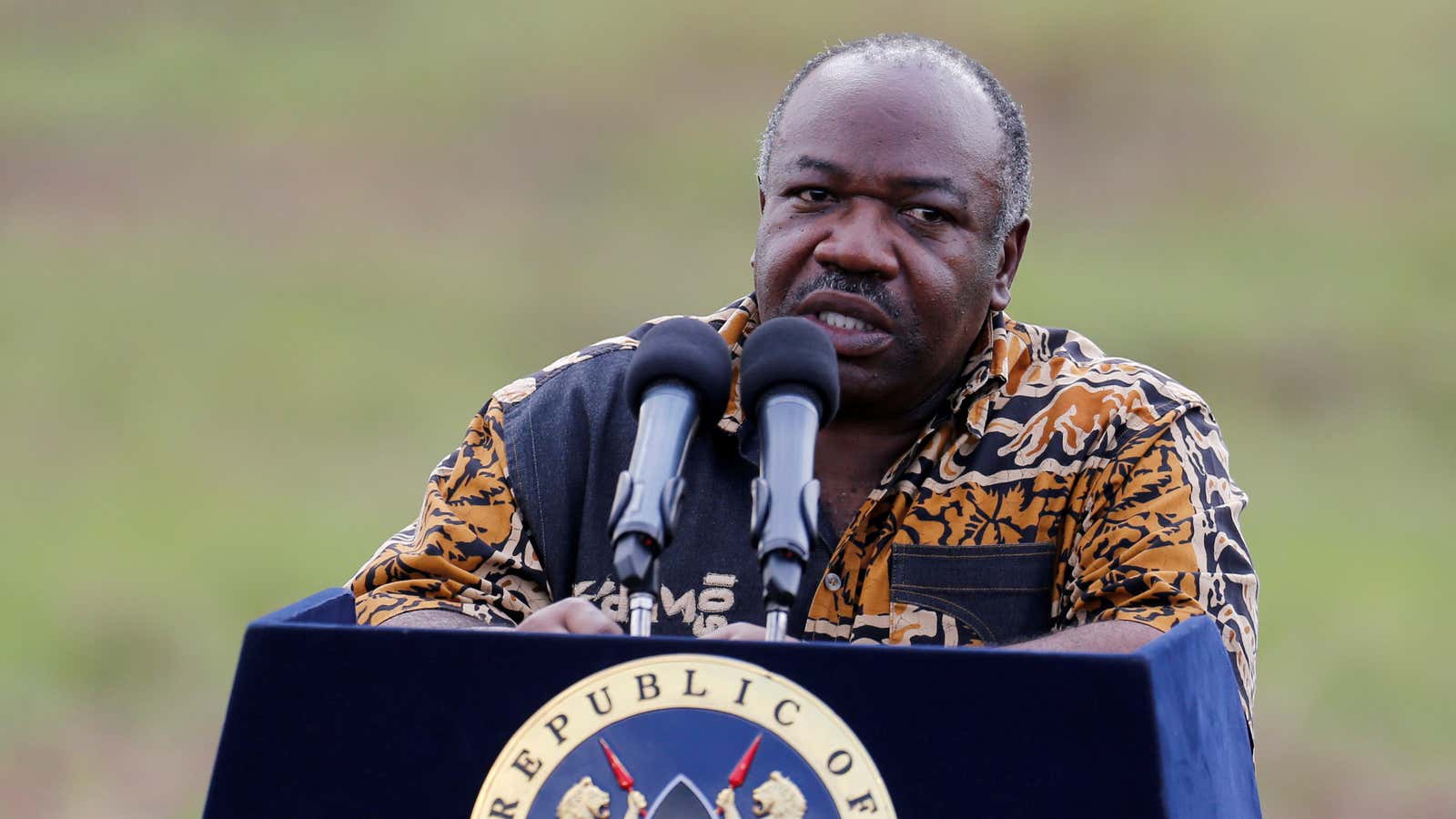An official visit by Ali Bongo, president of Gabon, to Saudi Arabia is not going according to plan and has thrown his country into uncertainty.
The president was scheduled to attend Saudi Arabia’s Future Investment Initiative conference last week but has instead has been admitted into the King Faisal hospital in Riyadh. While the government claims the president is under observation due to severe fatigue, Reuters reports president Bongo, 59, suffered a stroke, citing medical and diplomatic sources.
The uncertainty over Bongo’s health and illness is in keeping with the trend of secrecy around the health of African leaders who typically prefer to seek treatment abroad. Last year, Nigeria’s president Buhari spent over 150 days on medical leave in London treating an undisclosed illness.
While Bongo remains in Saudi Arabia, his administration back home is facing an internet shutdown that’s not of its own making. Anonymous, a group which deploys hacking as a means of protest, is claiming responsibility for shutting down several Gabonese government websites, including the finance and defense ministry websites. Gabon’s digital infrastructure agency confirmed up to 60 websites had been hit by the cyber-attack. It’s unclear if there’s any connection between the attack and the president’s absence.
For its part, Anonymous, which has previously launched similar attacks on government websites in South Africa and Zimbabwe, claims the cyber-attack is a campaign against dictatorships. Oil-rich Gabon has been ruled by the Bongo family for 50 years with current president Ali Bongo, in office since 2009, taking over following the death of his father who had held power for 42 years. Bongo was elected for a second seven-year term in office in 2016 despite contests by opposition groups over electoral fraud. His re-election was affirmed by Gabon’s supreme court even as violent protests broke out in the aftermath of the election results.
There is some irony to Anonymous’ attack in Gabon given the Gabonese government’s previous shut down of the internet in the country. In September 2016, the government implemented an “unprecedented” internet curfew with systematic nightly internet blackouts across the country following protests over controversial elections.
Sign up to the Quartz Africa Weekly Brief here for news and analysis on African business, tech and innovation in your inbox
